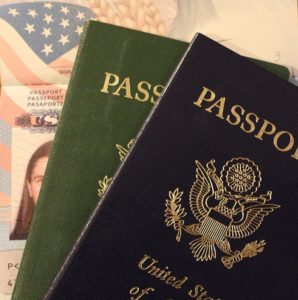 The Immigrant Investor Program provides the EB-5 visa, leading to permanent residence (green cards) to individuals who invest in a business in the United States. Spouses and unmarried children under age 21 may also apply for derivative permanent residence with the investor.
The Immigrant Investor Program provides the EB-5 visa, leading to permanent residence (green cards) to individuals who invest in a business in the United States. Spouses and unmarried children under age 21 may also apply for derivative permanent residence with the investor.
Investors may apply abroad through a U.S. consulate or embassy in their home country, or if already lawfully in the U.S., they may apply for adjustment of status through U.S. Citizenship and Immigration Services (USCIS). Investors must provide a detailed business plan and identify the source(s) of all capital invested in the business, along with evidence showing that the funds were obtained through lawful means.
Once an EB-5 visa is approved, conditional permanent residence is granted to the investor and any qualifying derivative family members for a two-year period. The EB-5 investor and derivative family members may submit a petition to remove the conditions on their investment-based green cards beginning 90 days before the two-year period ends.
Moro Legal, LLC, advises and assists investors through the EB-5 visa process for U.S. permanent residence and green cards. Schedule an attorney consultation online today to begin your journey, or contact our office for more information.
The Immigrant Investor Program has implemented revisions, effective November 21, 2019, which include increased minimum investment requirements, direct USCIS review of Targeted Employment Area designations, and revised procedures for the removal of conditions on permanent residence. This page provides information on the revised requirements; for EB-5 applications submitted prior to November 21, 2019, different regulations may apply.
What are the requirements for an investment to qualify for an EB-5 visa?
 For EB-5 applicants on or after November 21, 2019, the standard minimum investment amount is set at $1.8 million. The minimum investment in a Targeted Employment Area or through the Regional Center Program is set at $900,000. These amounts will be adjusted with inflation, tied to the Consumer Price Index for All Urban Consumers or CPI-U, every five (5) years.
For EB-5 applicants on or after November 21, 2019, the standard minimum investment amount is set at $1.8 million. The minimum investment in a Targeted Employment Area or through the Regional Center Program is set at $900,000. These amounts will be adjusted with inflation, tied to the Consumer Price Index for All Urban Consumers or CPI-U, every five (5) years.- Individuals may also qualify for the EB-5 program by expanding an existing business by 40 percent of net worth or the number of jobs that existed pre-investment, or by retaining all existing jobs in a troubled business that has lost 20 percent of its net worth over the past 12 to 24 months.
- The commercial enterprise must result in full-time employment for at least 10 qualified individuals, or maintain the number of existing employees at no less than pre-investment levels if investment is made in a pre-existing “troubled business.”
- Importantly, the investor must show that he or she has already invested, or is actively in the process of investing, the required amount of capital into the U.S. enterprise at the time of filing the petition. This requirement can be met by an escrow agreement or subscription agreement. Investors may place investment funds in escrow, for instance, on condition that the investor may remove them if the EB-5 visa petition is denied or not granted within a given time frame.
How does investing through a Regional Center work?
A Regional Center is defined by federal statute as an economic unit, public or private, in the United States that is designated by USCIS “for the promotion of economic growth, including increased export sales, improved regional productivity, job creation, or increased domestic capital investment.” Regional Centers have jurisdiction over a limited geographic area in order to focus investment in a specific area. An investment in a Regional Center may interest investors seeking a passive investment opportunity in the United States that fulfills the requirements of the EB-5 program to qualify for green cards and U.S. permanent residence.
 Regional Centers must be approved by USCIS, but are located across the United States and there is no requirement that EB-5 investors reside in the same area as the Regional Center of their investment. USCIS maintains a searchable list of approved Regional Centers on its website.
Regional Centers must be approved by USCIS, but are located across the United States and there is no requirement that EB-5 investors reside in the same area as the Regional Center of their investment. USCIS maintains a searchable list of approved Regional Centers on its website.
To qualify for a Regional Center Program investment, generally individuals must qualify as “accredited investors” as defined in the Code of Federal Regulations due to U.S. Securities and Exchange Commission rules. There are different ways to qualify as an “accredited investor” under U.S. securities regulations, but individuals commonly qualify by demonstrating a net worth over $1 million, either alone or together with a spouse (excluding the value of the person’s primary residence), or income exceeding $200,000 in each of the prior two years ($300,000 if including spouse’s income) and reasonably expecting the same for the current year.
If investing in a Regional Center Program, positions shown to have been created indirectly through the investment (e.g., jobs created at the business’s suppliers or equipment manufacturers), and positions “induced” by the investment (including jobs created in the surrounding community as a result of the economic impact of the business investment) may count towards the job creation requirement.
***
Moro Legal, LLC, assists and represents investors through the EB-5 visa and green card process. Contact us today to get started.
Note
The content of this website is for general informational purposes only and is not a replacement for legal advice. Immigration law is a complex area of law that is constantly changing and this website cannot cover every facet of the law. Every case is different, and all individuals and businesses should consult with an immigration lawyer prior to filing any petition or application.

 For EB-5 applicants on or after November 21, 2019, the standard minimum investment amount is set at $1.8 million. The minimum investment in a Targeted Employment Area or through the Regional Center Program is set at $900,000. These amounts will be adjusted with inflation, tied to the Consumer Price Index for All Urban Consumers or CPI-U, every five (5) years.
For EB-5 applicants on or after November 21, 2019, the standard minimum investment amount is set at $1.8 million. The minimum investment in a Targeted Employment Area or through the Regional Center Program is set at $900,000. These amounts will be adjusted with inflation, tied to the Consumer Price Index for All Urban Consumers or CPI-U, every five (5) years.